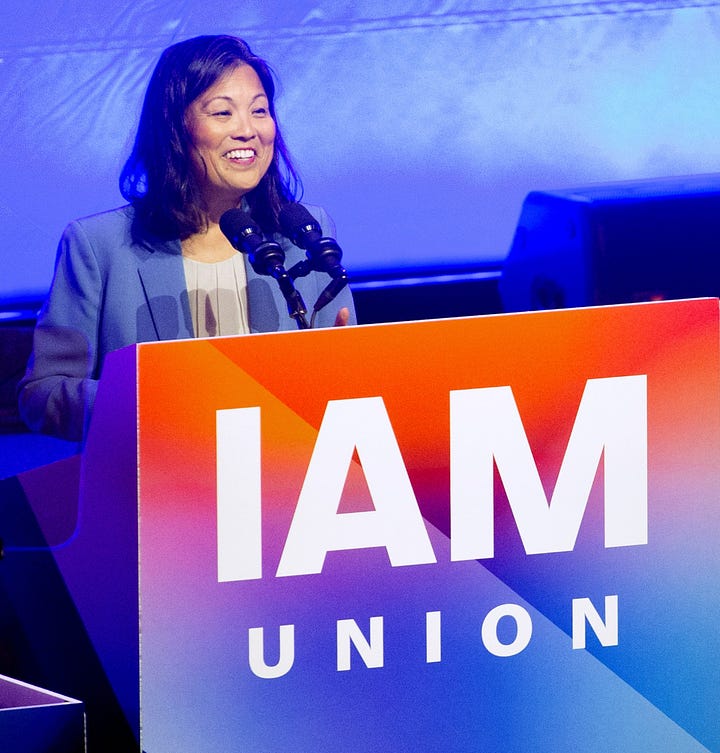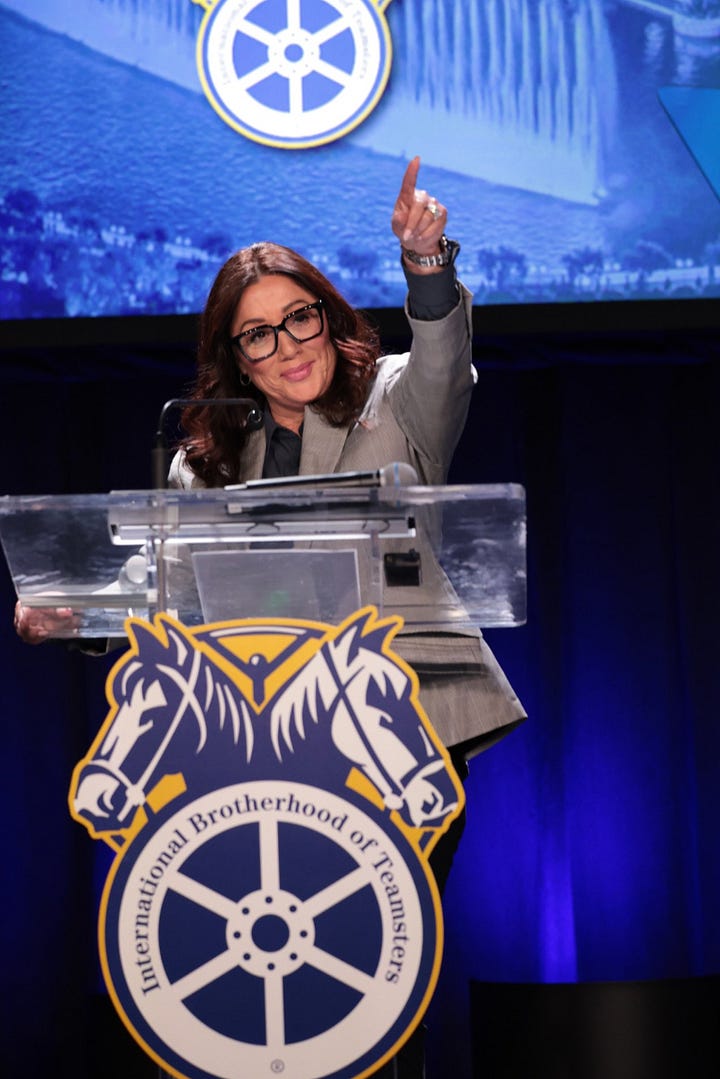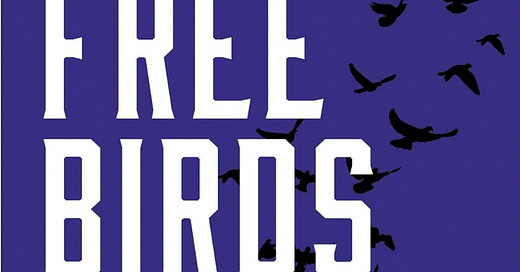Revolutionary Thinking
Miles Everson's book about self-employment dares to say 'the independent workforce puts the balance of power in the hands of labor.'
I just finished reading Free Birds Revolution: The Future of Work and the Independent Mind by Miles Everson. He’s the CEO of MBO Partners, a company that readers who follow independent-contractor policy will recognize as routinely producing research about self-employed Americans.
Everson’s book puts MBO’s data into cultural context for readers who are struggling to understand the increased demand for self-employment and employee remote work coming out of the pandemic.
This book offers a cultural roadmap from the dawn of the personal computer to today. It explains how the thinking of older generations has evolved, why Gen Z in particular seems to be more entrepreneurial than any other generation now alive, and why so many of us say we feel happier, healthier and more secure as our own bosses instead of in traditional jobs as a single company’s employee.
For me, as someone who has been a professional freelancer since 2003, and who deeply understands this cultural shift and its related data, the most interesting bit in Everson’s book is on page 88.
He writes:
“As I work alongside independents and the enterprises that increasingly use the external workforce, I am convinced that the ‘labor vs. management’ warfare can become a thing of the past. In the battle for talent between enterprises, we can all win. But you must expand the ‘we’ to include all the workforce, not just your full-time employees.
“The independent workforce puts the balance of power in the hands of labor.”
I actually went back and read that passage a second time. Then I underlined it. And drew a bunch of stars next to it in the page’s margin.
In my mind’s eye, I could see the freelance busters reading that passage, slamming the book shut and then hurling it into a burn pit.
I could feel the rage these words would elicit if they were ever spoken as testimony before a state legislature or in a congressional hearing.
It was easy to hear the union-backed lawmakers, the unionized labor reporters for major media outlets, and the union organizers yelling one word in response to Everson’s point-of-fact statement.
Blasphemy!
What Everson describes in that passage is, indeed, revolutionary thinking, the kind that is poised to reshape power structures and society for generations to come.
Learning to Look Up
What Everson wrote in that passage, in the minds of more than a few powerful people here in the year 2025, puts him on par with the radicalism of Nicolaus Copernicus way back in 1543.
That’s the year Copernicus wrote De revolutionibus orbium coelestium, which means “On the Revolutions of the Heavenly Spheres.” Copernicus detailed what was then considered a radical theory: that the Earth, along with other planets, revolved around the sun.
Copernicus’ findings were such a threat to the existing power structure—his writing conflicted so sharply with the church’s teachings—that, at one point, the Catholic Church issued a prohibition against this theory. The men who held power at that time outright tried to ban the idea of people thinking differently.
It took more than a century for Copernicus’ scientific concept to gain widespread acceptance. Other people had to amass more evidence and add to his work. Galileo had to point a telescope at the starry skies, ultimately leading to his trial for heresy. Isaac Newton had to define gravity. Some people branded him a heretic, too.
But when truth is indisputable, and when a broad number of people become unafraid to embrace it, the old power structures and systems of control come crumbling down. This period of human history, known as The Scientific Revolution, marked a shift from people being guided solely by religion to being able to understand the world differently, through science.
Long story short, people learned to look up and think a whole lot bigger.
What Everson wrote in Free Birds Revolution—that the independent workforce “puts the balance of power in the hands of labor”—is a concept just as heretical to people who have been in a position of workforce power for the past century in the United States of America.
Since the 1930s and the New Deal, traditional employers and union organizers have held a startling amount of power in defining our everyday lives, our laws and the way we understand the world around us. During our lifetimes, it was taken almost as religion for decades that the path to achieving the American Dream was getting a full-time job. In the 1950s, that path—for about a third of the U.S. workforce—also included being a unionized employee. The widespread belief that a traditional union job was the right way to exist was something that, in a lot of people’s minds, seemed as bedrock as the fact that the Earth revolves around the sun.
Then, the personal computer was invented. People started to realize they didn’t have to be a slave to the corporate office, and things started to change all across modern-day society. As Everson writes, an increasing number of people could earn a living however they pleased, without any boss at all. As more and more people found the courage to make this leap away from traditional jobs and into the independent-contractor lifestyle, an increasing number of them also realized they could feel happier and healthier, and have a much better work-life balance.
Today, according to MBO’s research, about 72 million Americans are at least partially, if not fully, on this particular path to the American Dream—and according to the latest data from the U.S. Bureau of Labor Statistics, it’s the path where 80% of us who have made that leap prefer to remain.
Our beliefs are anathema to people whose power derives from a significant portion of the workforce being employees in unionized workplaces. Such people willfully ignore all the evidence that the rest of us can see all around us. They don’t even allow independent contractors a seat at the legislative tables where independent-contractor policy is being made.
And when a few of us do manage to sneak into their halls of power and policymaking—when we get just a few minutes to speak our minds freely, as recently happened in Minnesota—they cry out that what we’re saying is “bullshit.”
Arguably, bullshit is our era’s term for blasphemy. It’s what people say before they try to cancel us online and in real life, essentially branding us as heretics.
Everson writing that the independent workforce “puts the balance of power in the hands of labor” defies what we have long been instructed to believe about the word labor. For generations, the powers that be have schooled us into thinking that labor power is synonymous with union organizing. But Everson’s writing is rooted in today’s reality, that unions now represent just a small fraction of the modern workforce, and that corporations are the full-time bosses of fewer and fewer of us. The people doing the actual work are asserting our power to be our own bosses.
Significant numbers of us embracing such a worldview by joining what Everson calls the Free Birds Revolution is just as much of a threat to our past century’s power structure as The Scientific Revolution was to the church’s power all those years ago.
And the reaction of the people who have long held power over us is equally predictable. The church issued a prohibition against the Copernican thinking back then, trying to stop his perfectly legitimate idea from gaining hold. Nowadays, we’re seeing legislation like California’s Assembly Bill 5 and the federal Protecting the Right to Organize Act attempting to stop our perfectly legitimate desire to be our own bosses from spreading throughout society.
Freelance busting is an attempt to quash a belief that millions of us feel in our bones is true, no matter how often the people trying to cling to power tell us otherwise.
Let There Be Rights
We live in a time when most Americans say we would prefer to be our own boss. A time when less than 10% of wage and salary workers are union members, and when it’s projected that within a couple years, more than half the workforce will be earning income as independent contractors.
That doesn’t mean our society is anti-union. We’re not. We believe in liberty and the pursuit of happiness. Most of us approve of labor unions, and of employees’ right to join them, but at the same time, most of us don’t want to join a union ourselves.
These nuanced beliefs can make it hard to understand why we so routinely see people in positions of power over the workforce, like former U.S. Labor Secretary Julie Su and current U.S. Labor Secretary Lori Chavez-DeRemer, preaching from behind the pulpits of union leaders. Why make so much of an effort to promote something that most Americans say we don’t want?


They’re doing this for the same reason the church kept trying to promote its message of religion as the The Scientific Revolution took hold.
Think again about what Everson wrote:
“As I work alongside independents and the enterprises that increasingly use the external workforce, I am convinced that the ‘labor vs. management’ warfare can become a thing of the past.”
If there is no warfare between labor and management—if we have a situation that lets companies thrive while those of us who are independent-minded get to thrive too—then there is no more need for traditional unions.
Don’t take my word for it. The head of the Massachusetts AFL-CIO recently called independent contractors an “existential threat to society.” Right now, in that state as well as in Minnesota and California, union leaders are trying to change the law in an unprecedented way so they can gain power over us all.
Independent contractors are not an existential threat to society—but as our numbers grow, and as we refuse to back down from our beliefs about having more freedom in how we earn a living, we are absolutely an existential threat to the power these kinds of union leaders have held over society for many, many years.
Why do politicians care about that? Because smaller unions also make independent contractors a threat to the politicians whose campaigns these union leaders bankroll, and to the number of votes these union leaders can harness.
Freelance busting is an attempt to swing society back in the direction that has long given these people the kind of power and control that many of us are now claiming for ourselves.
Hypocrisy, Indeed
Later in his book Free Birds Revolution, on page 112, Everson writes this:
“I would argue that the skilled independent workforce doesn’t want or need governmental regulation to protect them from enterprises. From what I see, the independent mind has a bit of a libertarian bent, wanting to keep the government out of their business and live up to the full meaning of the word ‘independent.’”
On the next page, he adds:
“Further, I marvel at the hypocrisy of the government guaranteeing the right of workers to organize but not protecting their right to choose whether they contract as an employee or an independent.”
He might as well having been mining those sentence right out of my brain. Or, perhaps, reading this Q&A that I did with author Luke Conway back in September about freelance busting and authoritarianism.
There are very good reasons why so many of us independent contractors oppose the PRO Act’s freelance busting, and why we want lawmakers, instead, to pass the Modern Worker Empowerment Act to protect us.
Support for freelance busting is reactionary. It’s like the behavior of the church in 1543. Support for independent contractors is evolutionary. We are continually adding evidence and gaining believers in the vein of Copernicus, Galileo and Newton.
Tens of millions of us have already found the courage to look up and think for ourselves about what it means to earn a living in a way that works best for us. Lightning bolts did not shoot down from the sky and destroy us when we became our own bosses. We are not only surviving, but many of us are thriving: Nearly one in five of us is now earning more than $100,000 a year.
Independent contractors see the world around us as being filled with all kinds of potential. We embrace the idea of free thinking.
Never, in the history of humanity, has there ultimately been a way to stop that.





